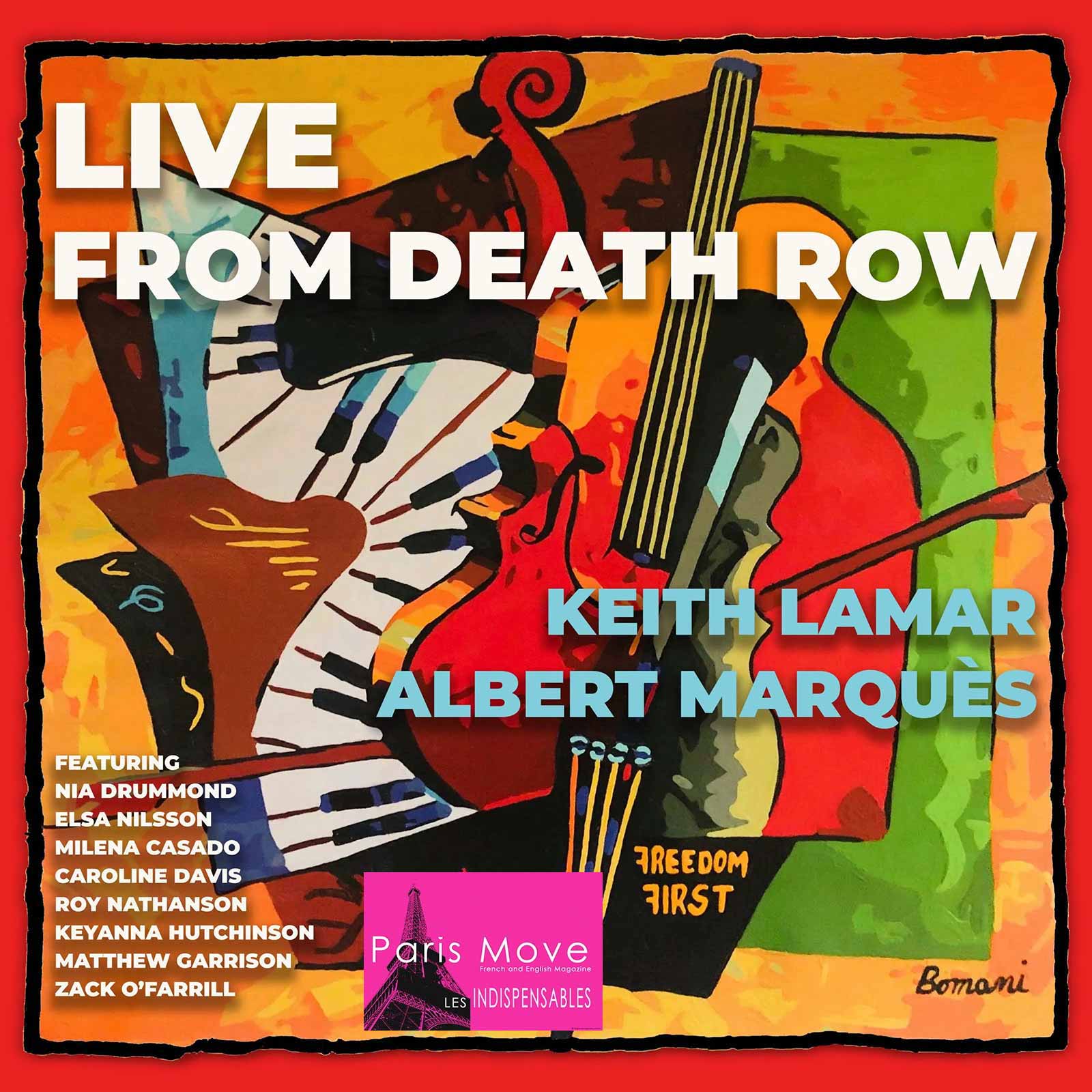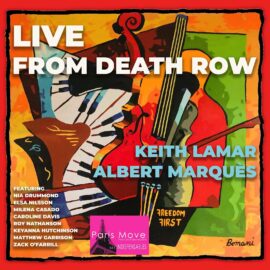| Jazz |

A Voice Through the Static: Keith LaMar’s Live From Death Row and the Music of Survival
Some albums strike you with their beauty. Others with their boldness. And then there are those rare works that confront you with a question you cannot quite shake: What does it mean to create art when your life is at stake?
On May 30, 2025, death row inmate Keith LaMar will release Live From Death Row, a jazz album recorded from solitary confinement inside the Ohio State Penitentiary. That sentence alone feels like it belongs more to fiction than reality. But this is not fiction. This is the second chapter in an improbable, defiant, and deeply human journey that began in 2022 with Freedom First—the first full-length album ever recorded by a person facing execution.
The announcement of Live From Death Row arrives with the weight of a statement more than a press release. The facts themselves,unfiltered, unsoftened—land with the force of cold truth: a man, confined in a cell for more than 30 years, convicted in a case marred by irregularities, is not only surviving, but creating. Not only creating, but collaborating. Not only collaborating, but performing, live.
The launch concert will take place the day after the album’s release, on May 31, at Joe’s Pub in New York City. But the live performance at the heart of the album took place months earlier, in September 2023, at ShapeShifter Plus in Brooklyn. It was a sold-out show. A night of music shaped by urgency, by history, by a sense of shared witness.
LaMar, locked alone in a small concrete box in Ohio, participated via telephone. His voice, gravelly, determined, sometimes breaking, was piped through the sound system as a band of remarkable musicians played around him: Nia Drummond on vocals, Elsa Nilsson on flute, Milena Casado on trumpet, Caroline Davis on alto sax, Roy Nathanson on both baritone and alto, Keyanna Hutchinson on electric guitar, Matthew Garrison on electric bass, and Zack O’Farrill on drums.
The album doesn’t attempt to mask its rawness, it leans into it. The sound of a man calling in poetry from a prison phone line isn’t polished. It isn’t pristine. But it is real. And within that reality exists something extraordinary: a confrontation with time, with memory, with injustice, with the narrow edge between art and survival.
There is no artifice here. No ornamental posturing. This is protest stripped of slogan, music stripped of indulgence. What remains is an act of radical presence.
Keith LaMar has been in solitary confinement since 1993, when he was convicted for his alleged role in the Lucasville prison uprising, a deadly eleven-day standoff that left ten men dead. He has always maintained his innocence, and his case has been plagued by disturbing irregularities, suppressed evidence, incentivized testimonies, and a trial before an all-white jury in a rural Ohio courtroom. The state of Ohio has set his execution date for January 13, 2027.
But before then, LaMar continues to speak. Through poems. Through notes. Through jazz.
Together with Albert Marquès, the Catalan pianist and composer now based in Brooklyn, LaMar has spent the last five years building Freedom First into more than an album, it has become a movement, a question posed to audiences around the world. Since 2020, they have taken the project to cities across Europe and the United States, performing with international musicians and confronting listeners with a simple premise: that art can still emerge from the margins, and that it might just shake us from our complacency.
And the world has listened. Freedom First has been featured in The New York Times, Rolling Stone, WNYC, Democracy Now!, Le Figaro, El País, and Time Out Barcelona.
Still, LaMar remains in his cell. And the clock continues to tick.
To call Live From Death Row a jazz album would be accurate, but incomplete. This is music as bearing witness. It belongs to the tradition of protest that animated Nina Simone, Max Roach, Charles Mingus, and, most of all, John Coltrane, whose influence looms large over LaMar’s artistic and spiritual life.
“John Coltrane saved my life,” LaMar says. “Without A Love Supreme, I probably would’ve lost myself. I listened to it every day. It rewired my brain, helped me see the world, and myself,differently. I needed that to survive.”
There’s a kind of strange grace in the fact that Coltrane, who once searched for God through sheets of sound, could reach a man locked in a box for three decades. Strange, too, that jazz, born of suffering, resistance, and community, might offer communion through a prison telephone.
This is not redemption music. It does not seek to comfort. It demands that we sit with discomfort. That we ask ourselves what kind of society allows such a voice to be nearly extinguished, and whether we are content with the answer.
Live From Death Row is not a solution. It is a signal flare. It is, in the words of its creators, a way of “bringing humanity back into a place designed to crush it.” And maybe, just maybe, it is a way of being heard.
by Thierry De Clemensat
Member at Jazz Journalists Association
USA correspondent for Paris-Move and ABS magazine
Editor in chief – Bayou Blue Radio, Bayou Blue News
PARIS-MOVE, May 16th 2025
Follow PARIS-MOVE on X
::::::::::::::::::::::::
May 31: Joe’s Pub, NYC ALBUM RELEASE PARTY
::::::::::::::::::::
Please click and join us on:
Freedom First on Albert Marquès’ website
Justice for Keith LaMar on Facebook
Justice for Keith LaMar on Instagram
FREE Keith LaMar on X / Twitter
Freedom First Music on Tik Tok


